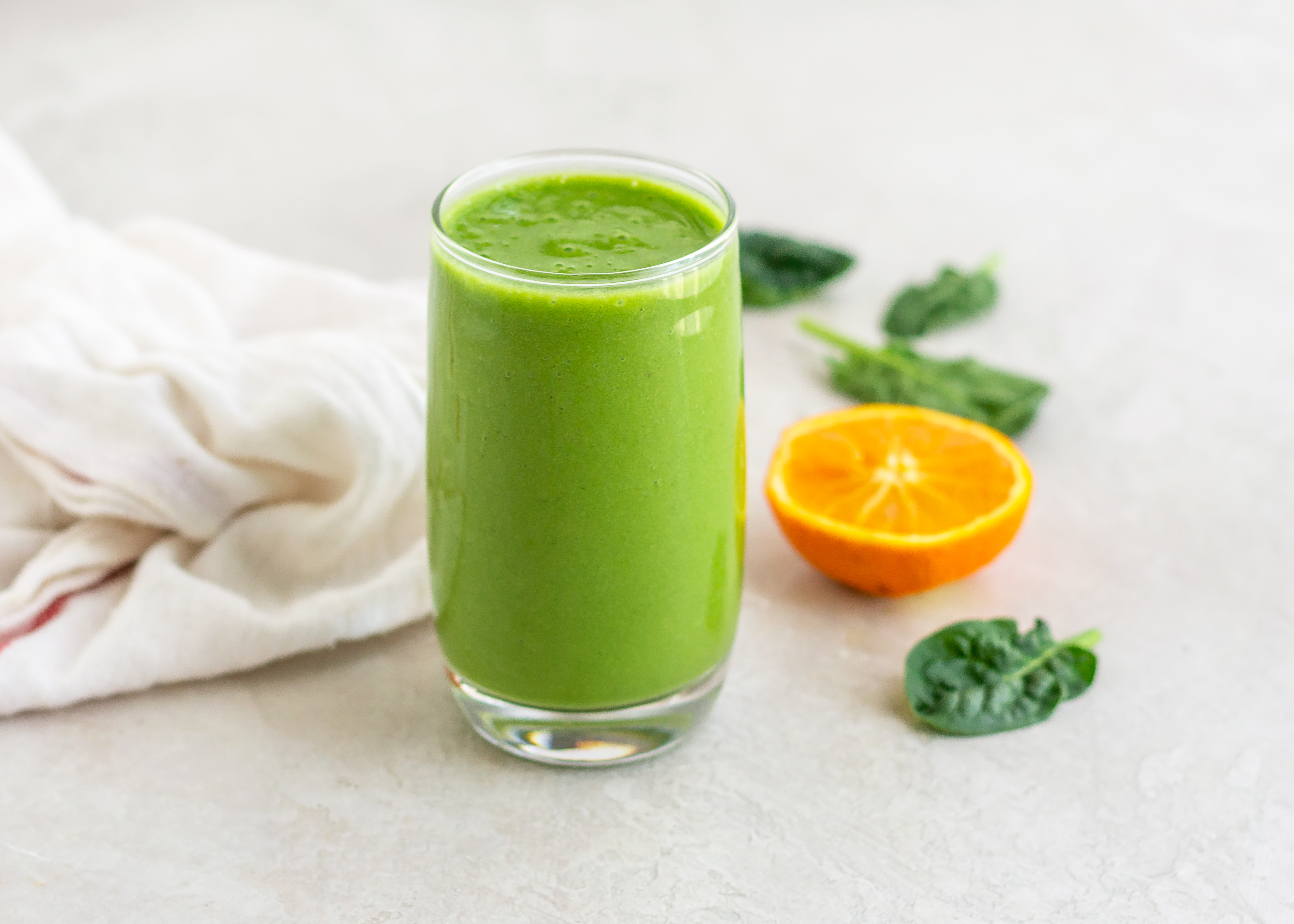Neurodegenerative disorders like Alzheimer's and Parkinson's Disease impact millions of people worldwide with the incidence only expected to increase as the population ages. More and more research is proving that diet can impact cognition and the MIND Diet is becoming widely accepted as an effective dietary intervention to address cognitive decline and some neurodegenerative conditions.
What is The MIND Diet?
MIND stands for Mediterranean-DASH intervention for neurodegenerative delay.
The MIND Diet was developed by researchers at Rush University Medical Center. It combines the Mediterranean and DASH (Dietary Approaches to Stop Hypertension) eating patterns to emphasize foods that can improve brain health and reduce the risk of Alzheimer's and dementia.
- The Mediterranean Diet consists of whole, minimally processed foods including grains, legumes, vegetables, fruit, nuts, and fish. It incorporates small amounts of meat, eggs, and dairy products, and a modest amount of alcohol may also be included.
- The DASH diet emphasizes fruit, vegetables, and low-fat dairy products. It includes whole grains, poultry, fish, and nuts but is limited in fat, red meat, sodium, added sugars, and sugar-sweetened beverages.
The MIND diet pulls principles from both the Mediterranean Diet and the DASH Diet to incorporate neuroprotective foods.
The focus of the MIND Diet is on incorporating the following foods and food groups:
- Whole grains, three servings daily
- Green leafy vegetables and one other vegetable, daily
- Nuts or nut butter, daily
- Beans, every other day
- Olive oil as the primary oil used
- Poultry and berries, at least twice a week
- Fish, at least once a week.
The MIND Diet suggests limiting or avoiding the following foods:
- Red meat
- Butter
- Cheese
- Fried and fast food
- Pastries and sweets
Tip: Check out That Clean Life's ready-to-use Brain Health Support Program and Plant-Based Brain Health Support Program based on the MIND-diet foods and key nutrients to support and improve brain health. Both programs include a meal plan, itemized grocery list, recipes, a prep guide, and supporting evidence. The programs are fully customizable based on your client’s energy needs and preferences.
Benefits of the MIND Diet
An increasing body of evidence that shows the MIND Diet is associated with improved cognition and can decrease risk, delay onset, and slow progression of Parkinson's disease. Eating MIND-diet foods has been proved to improve cognitive function including memory, attention, and visual-spatial skills.
Following the MIND Diet can also reduce inflammation. Chronic inflammation can trigger or worsen many diseases, including Alzheimer’s disease, Parkinson's disease, heart disease, diabetes, and autoimmune diseases.
The MIND Diet increases the intake of whole grains, fruits, and vegetables, which improves blood sugar control, lowers the risk of type 2 diabetes and reduces the rate of heart disease by lowering total cholesterol and increasing HDL cholesterol.
Key Nutrients for MIND Diet Meal Planning
Because the MIND Diet requires your client to incorporate very specific amounts of foods and food groups on a daily or weekly basis, meal planning is key.
When building a MIND Diet meal plan for your clients, these are the key nutrients and considerations to prioritize.
Healthy Fats
Good quality fats are associated with a lower risk of developing dementia. The diet is rich in monounsaturated fat and polyunsaturated fat from olive oil, avocado, salmon, nuts, and seeds, and lower in saturated fat, meats, and dairy products.
Olive oil is the main source of fat and contains tocopherols, polyphenols, and a balanced linoleic/alpha-linolenic acid profile, which is beneficial for the immune system and inflammatory responses. A great way to incorporate olive oil in your client's meal plans is to include this Garlic Infused Olive Oil with leafy greens and vegetables.

Antioxidants
Berries are a focus in the MIND Diet as the antioxidants in berries are thought to benefit brain function by protecting the brain from oxidative stress. Berries reduce inflammation that would otherwise damage the body’s neurons, they are high in fiber which boosts digestive health, and a higher intake of flavonoids appears to reduce rates of cognitive decline in older adults.
Dietary vitamin E, which is found in nuts, plant oils, seeds, and leafy greens, is a very potent antioxidant associated strongly with brain health. The plan also includes vitamin C which has been found to help neurons cope with aging.
Fiber
The MIND Diet emphasizes eating at least three servings of whole grains daily as increased whole grain intake is linked to a reduced risk of cardiovascular disease, cancer, respiratory disease, diabetes, and infectious disease. Adding vegetables including green leafy vegetables, nuts, berries, and beans provides additional fiber which also boosts digestive health.
This Eggplant, Rice & Beans is a great dish to add to your client's MIND Diet meal plan as it contains 15 grams of fiber per serving.

Low Sodium
The DASH diet recommends limiting sodium to less than 2000 milligrams per day to prevent or treat hypertension and reduce the risk of stroke and cardiovascular disease. The Mediterranean diet is linked to improvements in blood pressure, reduced risk of heart disease, and better insulin sensitivity.
Tip: Log in to That Clean Life and use the sodium filter to search for recipes low in sodium.
No Added Sugars or Dairy
Foods such as butter, cheese, and pastries, and sweets are limited in the MIND Diet. Using That Clean Life, you can easily add the “dairy-free” and "sugar-free tag" to find recipes that eliminate dairy and contain no added sugars for your client's meal plan, like this Banana Orange Green Smoothie.

Tip: Following the MIND Diet can be expensive due to the cost of foods like high-quality olive oil, fresh vegetables, berries, and nuts. To keep food costs down, incorporate more affordable options such as frozen berries, nut butter, and canned beans.
Summary
- The MIND diet combines the Mediterranean and DASH eating patterns and is modified to emphasize foods that can improve brain health and reduce the risk of Alzheimer's and dementia.
- The program encourages eating at least three servings of whole grains, green leafy vegetables, and one other vegetable, nuts or nut butter daily, beans every other day, olive oil as the primary oil used, poultry and berries at least twice a week, and fish at least once a week.
- Certain foods are limited such as red meat, butter, cheese, fried and fast food, and pastries and sweets.
- The diet contains nutrients and food components that have been directly linked to improved neurological function and reduced Alzheimer’s disease biomarkers in the brain such as healthy fats, fiber, antioxidants, and low sodium.
- Regular physical activity combined with the MIND Diet can reduce the risk of Alzheimer’s disease and may help prevent cognitive decline.
- The MIND diet requires more planning to ensure your client includes several food groups and can be more expensive from the cost of foods like high-quality olive oil, fresh vegetables, berries, and nuts. Proper meal planning can ensure your client follow the diet within their budget.

